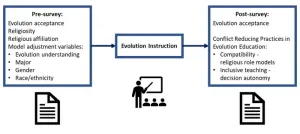(Press-News.org)
Images
EAST LANSING, Mich. – As global temperatures rise, it’s imperative that plants can adapt to new and changing conditions.
As global temperatures rise, it’s imperative that plants can adapt to new and changing conditions.
Michigan State University researchers from the Walker lab are looking at ways to give plants an assist. More specifically, their research aims to help plants adapt to changing temperatures by introducing engineered enzymes that will increase plants’ heat tolerance.
“I would say that the main goal of our research is to prepare plants for elevated temperatures because, with climate change, temperatures rise,” said Ludmila Roze, senior research scientist in the Michigan State University-Department of Energy Plant Research Laboratory, or PRL. “How can we help agriculture be prepared to sustain yield in this changing environment?”
The lab is looking to increase the thermotolerance of plants, or their ability to survive at high temperatures. These temperatures can wreak havoc on plants, down to the cellular machinery that keeps them alive. The plant’s ability to maintain its physical and chemical structures while under these temperature conditions is known as thermostability.
The lab’s recent paper looks at increasing thermostability of an enzyme known as glycerate 3-kinase, or GLYK, in the plant Arabidopsis thaliana, commonly known as thale cress. This enzyme is the final step of a vital plant process known as photorespiration, which is expected to become even more important as temperatures increase.
To develop a repertoire of enzymes with different thermostabilities, the Walker lab looks at a variety of photosynthetic organisms, including the alga Cyanidioschyzon merolae, which lives in acidic volcanic hot springs. When compared to many plants, C. merolae has much better thermostability.
“By understanding the ‘why’ of how [C. merolae enzymes] operate at higher temperatures, we can reengineer plant enzymes to be better prepared for a world with higher temperatures,” said Berkley Walker, associate professor in the PRL and the MSU Department of Plant Biology.
Combining artificial intelligence-assisted enzyme folding models with molecular dynamics by the PRL Vermaas lab, the researchers were able to identify parts of the C. merolae enzyme, referred to colloquially as loops, which were responsible for thermostability. These loops were introduced to the Arabidopsis GLYK enzyme.
The researchers found that, with the loops introduced, the Arabidopsis enzyme had increased thermotolerance, which would allow it to better adapt to a changing climate.
“There is very intensive research about how temperature affects plant growth, physiology and yield,” Roze said. “Elevated temperature affects many agricultural plants species in a dramatic way; they reduce their yield.”
For example, in some plants such as Brassica rapa, or field mustard, which turnips and bok choy were cultivated from, elevated temperatures can stall photosynthesis, putting the plant at risk.
The next step is to introduce these engineered, more thermotolerant enzymes into the model plant Arabidopsis to see how the plant reacts.
“Understanding how we can learn from nature and improve enzymes for a warmer future is critical since plants are faced with temperatures that they have not historically been exposed to,” Walker said. “Some enzymes are going to be just fine, but others may not be able to take the heat. With this knowledge, we have a strategy we can try on any enzyme to increase its ability to operate under warmer conditions.”
This study was published in Plant Biotechnology Journal.
This work was funded by the Division of Chemical Sciences, Geosciences and Biosciences, Office of Basic Energy Sciences of the United States Department of Energy under grant DE-FG02-91ER20021 and awards from the National Science Foundation Division of Integrative Organismal Systems. This work was supported in part through computational resources and services provided by the Institute for Cyber-Enabled Research at MSU.
By Kara Headley
###
Michigan State University has been advancing the common good with uncommon will for more than 165 years. One of the world’s leading public research universities, MSU pushes the boundaries of discovery to make a better, safer, healthier world for all while providing life-changing opportunities to a diverse and inclusive academic community through more than 400 programs of study in 17 degree-granting colleges.
For MSU news on the web, go to MSUToday or x.com/MSUnews.
END
How plant enzymes can adapt to higher temperatures
2024-12-04
ELSE PRESS RELEASES FROM THIS DATE:
The Gerontological Society of America congratulates new 2024 Awardees
2024-12-04
The Gerontological Society of America (GSA) — the country’s largest interdisciplinary organization devoted to the field of aging — is proud to acknowledge the work of 34 outstanding individuals through its prestigious awards program.
GSA salutes outstanding research, recognizes distinguished leadership in teaching and service, and fosters new ideas through a host of awards. Nominated by their peers, the recipients’ achievements serve as milestones in the history and development of gerontology.
The awardees were honored at various ...
New facility for evaluating hydrogen-compatible materials now complete
2024-12-04
1. NIMS has established and begun operating a new testing facility to evaluate the mechanical properties of materials exposed to low-temperature hydrogen environments. This facility can create hydrogen conditions across a broader range of temperatures and pressures than any other facility of its kind in the world. It is designed to assess the properties of materials when in contact with low-temperature gaseous or liquefied hydrogen, with the goal of developing cost-effective materials for hydrogen supply chains. This approach is expected to reduce the cost of producing and operating ...
Manta rays inspire the fastest swimming soft robot yet
2024-12-04
A team of researchers has beaten its own record for the fastest swimming soft robot, drawing inspiration from manta rays to improve their ability to control the robot’s movement in the water.
“Two years ago, we demonstrated an aquatic soft robot that was able to reach average speeds of 3.74 body lengths per second,” says Jie Yin, corresponding author of a paper on the work and an associate professor of mechanical and aerospace engineering at North Carolina State University. “We have improved on that design. Our new soft robot is more energy efficient and reaches a speed of 6.8 body lengths per second. In addition, the previous model could only swim on the surface ...
With a quarter-century of data on gun usage, new study examines when and why people start carrying guns and if they persist in doing so
2024-12-04
A new long-term study that has documented the lives of a diverse sample of children over the past three decades shows that the majority of gun carriers began to carry in adulthood, not adolescence. These two groups — which the authors call “adult-onset carriers” if they began carrying after 21 years of age and “adolescent-onset carriers” if their carrying started prior to 21 years of age — have very different patterns in exposure to violence prior to carrying, persistence in carrying, and in actual gun usage.
In “Dual Pathways of ...
How did humans and dogs become friends? Connections in the Americas began 12,000 years ago
2024-12-04
"Dog is man's best friend" may be an ancient cliché, but when that friendship began is a longstanding question among scientists.
A new study led by a University of Arizona researcher is one step closer to an answer on how Indigenous people in the Americas interacted with early dogs and wolves.
The study, published today in the journal Science Advances and based on archaeological remains from Alaska, shows that people and the ancestors of today's dogs began forming close relationships as early as 12,000 years ago – ...
A third of people from Chicago carry concealed handguns in public before they reach middle age, major 25-year study finds
2024-12-04
Around a third (32%) of people who grew up in Chicago have carried a concealed firearm on the city streets at least once by the time they turn 40 years old, according to a major study of gun usage taking in a quarter of a century of data.
Urban sociologists behind the research argue that such carry rates are likely to be similar across many other major US cities.
The research suggests that almost half of men (48%) have carried a concealed gun by the age of 40, compared to just 16% of women.*
The study, published in Science Advances, is one of the few to track gun usage in the same US population ...
Why some individuals believe fake news and conspiracies
2024-12-04
People who are credulous are less capable of recognizing fake news, and along with mistrustful adults, are more susceptible to conspiracy thinking and vaccine hesitancy, according to a study published December 4, 2024, in the open-access journal PLOS Global Public Health by Michal Tanzer and colleagues from University College London, U.K.
Epistemic trust is the readiness to regard knowledge communicated by others as significant, self-relevant, and generalizable to other contexts. Disruption to the capacity for epistemic trust may undermine healthy functioning that requires rapid, efficient checking and updating of social knowledge ...
Misokinesia, intolerance of others' fidgeting and repetitive body movements, can cause people to experience intense reactions, negative emotions and relationship strain, per qualitative study
2024-12-04
Misokinesia, intolerance of others' fidgeting and repetitive body movements, can cause people to experience intense reactions, negative emotions and relationship strain, per qualitative study
###
Article URL: https://journals.plos.org/plosone/article?id=10.1371/journal.pone.0313169
Article Title: I struggle with your fidgeting: A qualitative study of the personal and social impacts of misokinesia
Author Countries: Canada, U.S.
Funding: We received funding from Natural Sciences and Engineering Research Council of Canada (NSERC) for our study. The funders had no role in study design, data collection and analysis, decision to publish, or preparation of the manuscript. END ...
Not red in tooth and claw: Teaching evolution with conflict reduction practices increases acceptance
2024-12-04
Students in biology classes accepted the theory of evolution more often when it was taught with conflict-reducing practices, including an emphasis on religious compatibility and autonomy, according to a study published December 4, 2024 in the open-access journal PLOS ONE by Rahmi Ourota Aini and Elizabeth Barnes from Middle Tennessee State University, U.S., and colleagues.
Evolution is of the foundation of biology, but currently half of the United States population rejects the idea of human evolution. One of the most important factors in the acceptance of evolution ...
Emoji use may depend on emotional intelligence and attachment style
2024-12-04
Higher emotional intelligence is linked to more emoji use with friends, while avoidant attachment is associated with less emoji use with friends and dating or romantic partners, according to a study published December 4, 2024, in the open-access journal PLOS ONE by Dr. Simon Dubé, Research Fellow at The Kinsey Institute, Indiana University, U.S., and colleagues. This pattern of results varies across genders and relationship types, with women using emojis with friends and family more frequently than men.
Emojis are characters depicting emotions, objects, animals, and more. They can be sent ...






